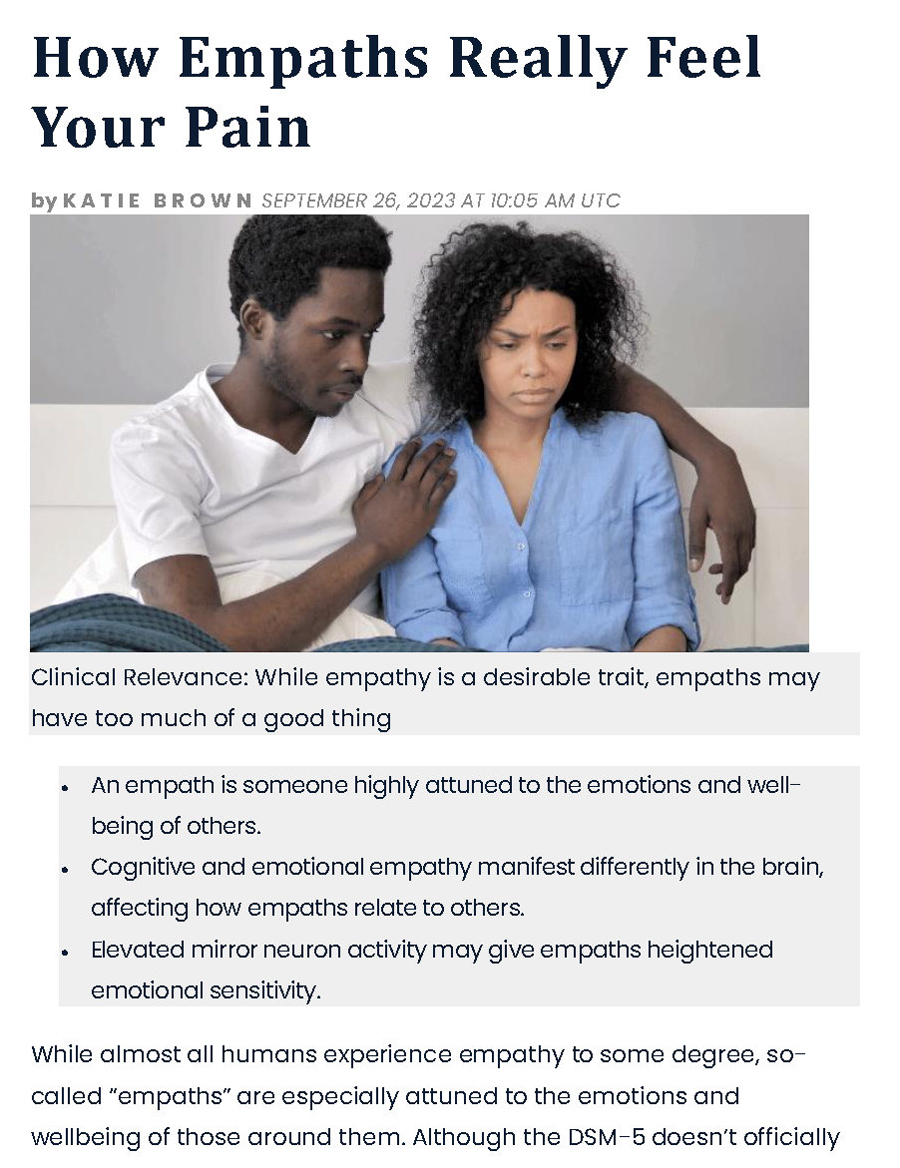
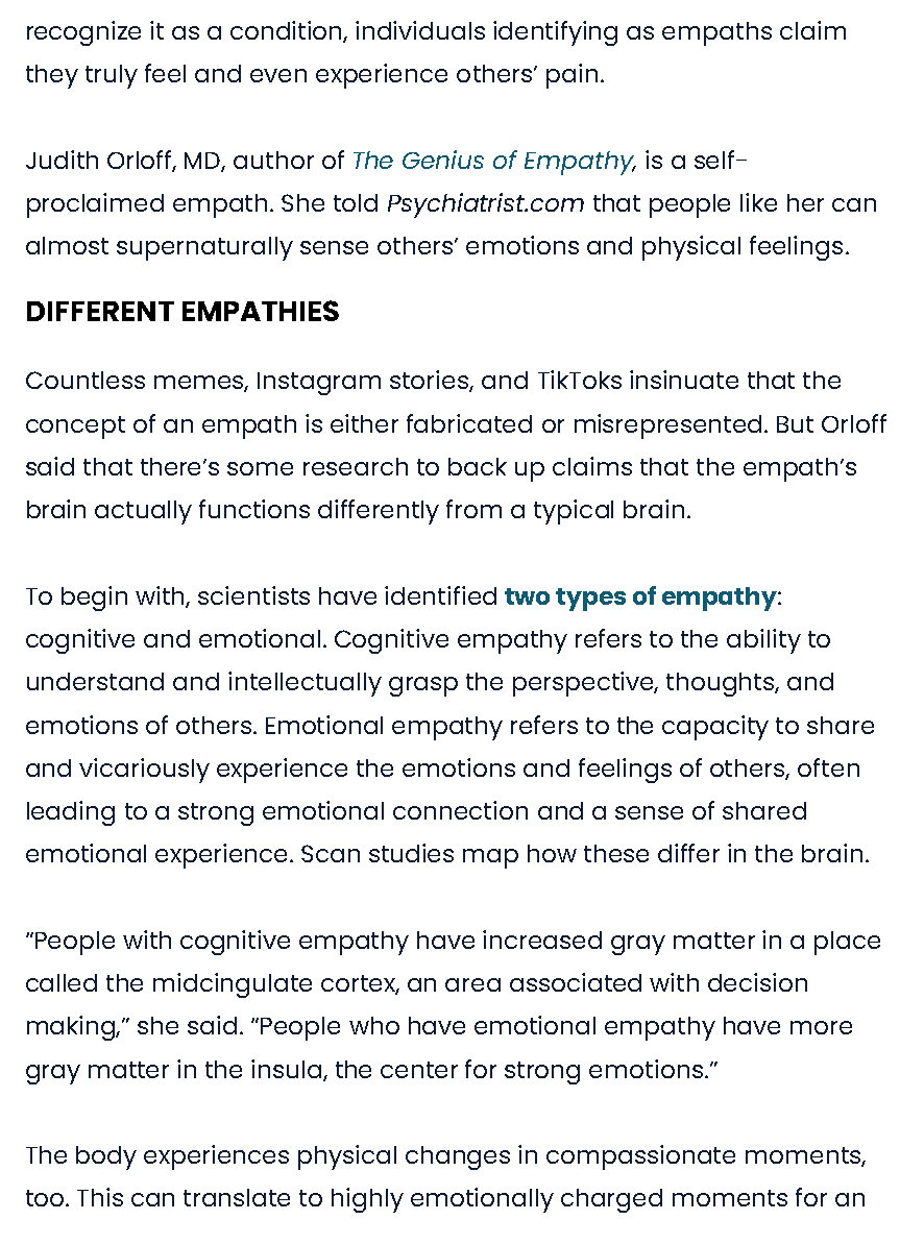
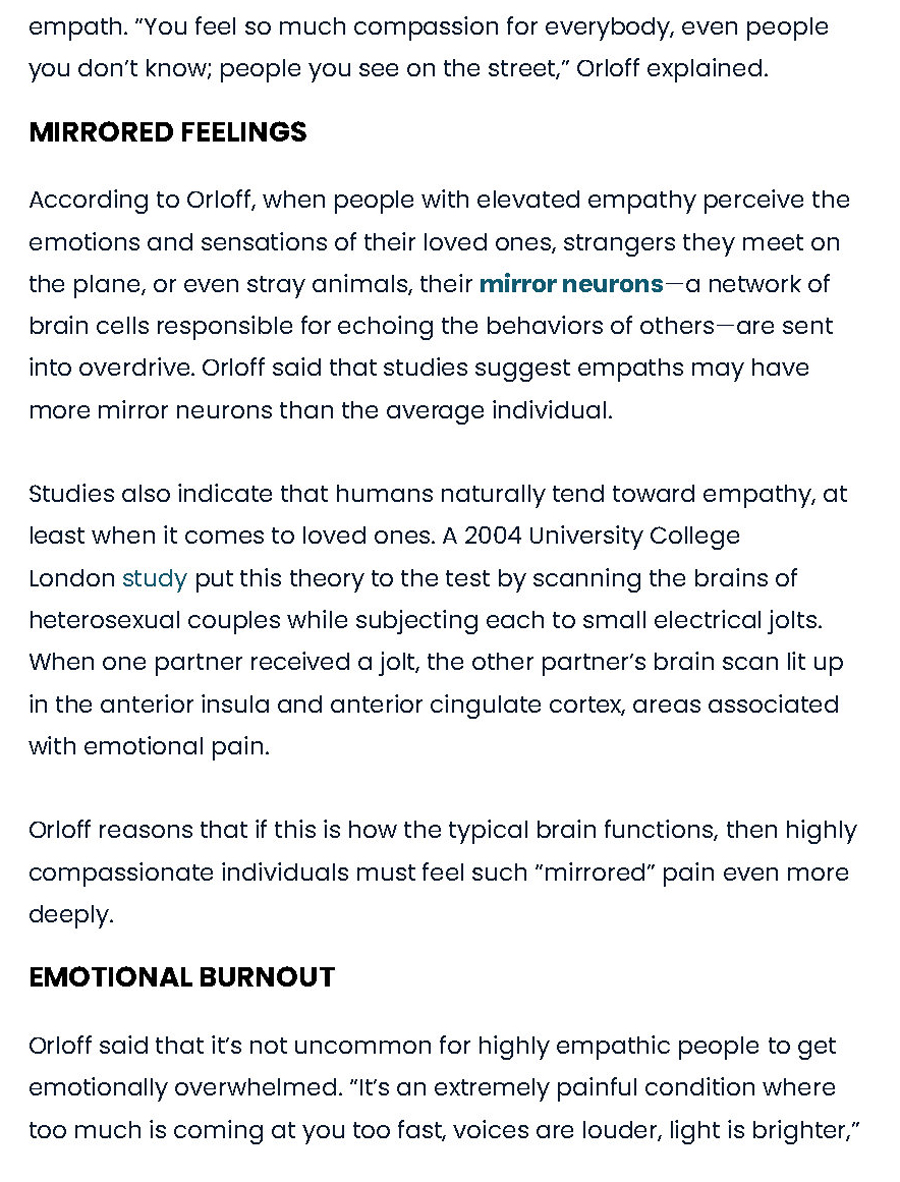
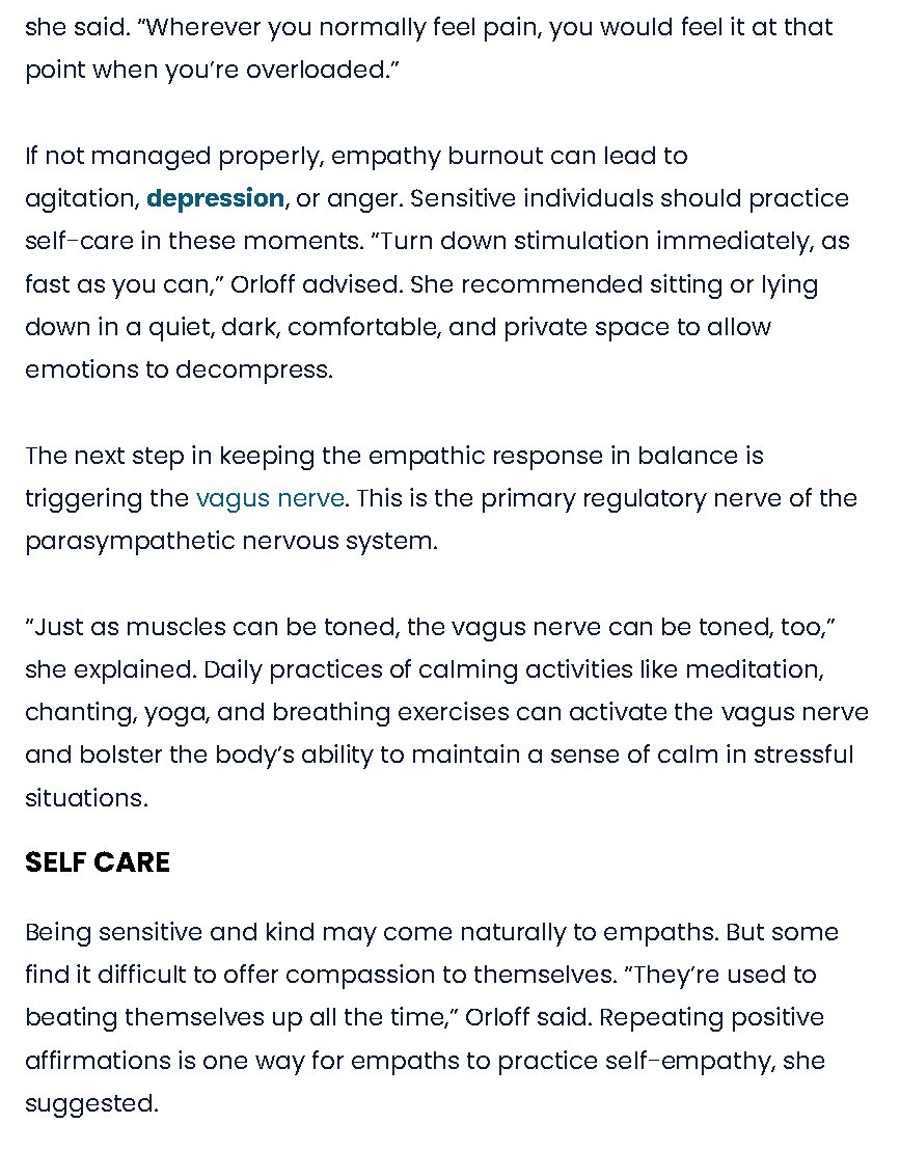
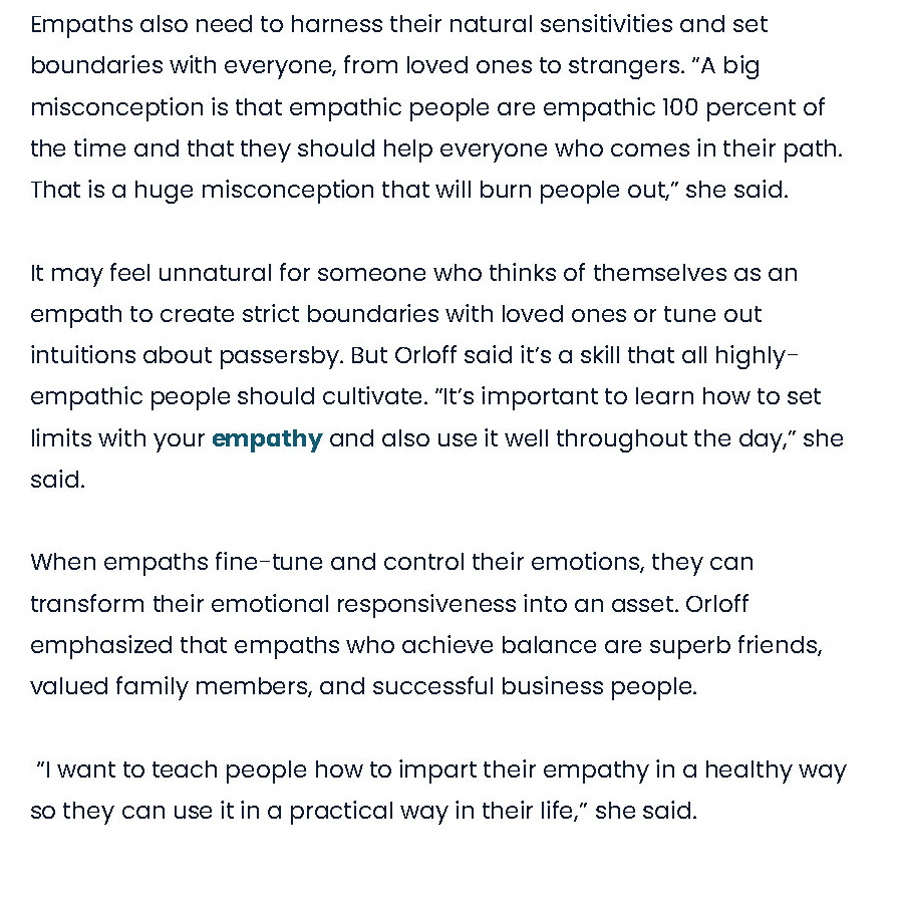
How to Stop Empathy Burnout
Many sensitive souls empathize so deeply that they often take on too much and then experience empathy burnout. For them it’s important to know that you don’t have to give 100% or more to everyone in need. At times, it’s okay not to be so available.
In order for highly sensitive people to stay centered and decompress, they need to leave this world for a while and practice self-care. Give yourself that break. When being of service, consider each situation individually. Always factor in your own energy level and physical and emotional limitations to access how much you have to give. These considerations don’t make you selfish. They make you smart. Of course, there are instances when service may involve enormous sacrifice such as when you’re a caregiver, which I will discuss. Generally, though, healthy giving nurtures you too.
As a psychiatrist, my patients often ask me, “How can I keep a balance with my empathy?”
In my book The Genius of Empathy: Practical Skills to Heal Your Sensitive Self, Your Relationships and The World readers learn strategies for healthy giving.
One suggestion is to give a little, not a lot. Appreciate the power of offering small gifts: a hug, a flower, a fresh salad, a birthday card, three minutes of your time instead of an afternoon. Some people limit their giving to an hour daily. Train yourself to be a high-quality giver in smaller increments when possible.
Also set compassionate, guilt-free limits. If you feel you “should” say “yes” to every request, practice setting limits. You can respond, “I’m sorry, I’m unable to attend, but I appreciate the invitation,” or “Thank you for asking, but I can’t take on more commitments now,” or “I’d love to help, and I only have an hour.” If you feel guilty about setting limits, it’s okay but set a limit anyways. Changing your behavior and acting “as-if” can precede an attitude shift. You don’t need to be guilt-free to set limits.
Learn more strategies for healthy giving Here.


